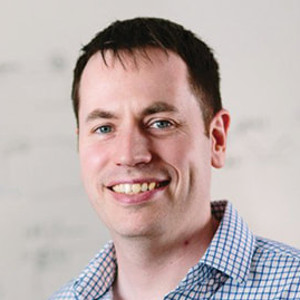GSK hires former Genentech expert for AI unit

GlaxoSmithKline has hired computational drug design specialist Dr Kim Branson to expand its artificial intelligence and machine learning unit.
Branson joins the pharma group as senior vice president and global head of AI and machine learning after holding positions at a number of Silicon Valley firms – including Hessian Informatics, Lumiata and Gliimpse – as well as a one-year posting as head of AI at Genentech that concluded in April.
 Branson (pictured) received a BSc in Biochemistry from the University of Adelaide in 1999, and went on to complete a PhD in Computational Drug Design at the University of Melbourne in 2003. He has been working on large-scale machine learning and medical informatics initiatives for more than 15 years.
Branson (pictured) received a BSc in Biochemistry from the University of Adelaide in 1999, and went on to complete a PhD in Computational Drug Design at the University of Melbourne in 2003. He has been working on large-scale machine learning and medical informatics initiatives for more than 15 years.
At GSK, Branson will report to Tony Wood, the company's SVP for medical science and technology, who is based in San Francisco, said a spokesperson. He is the second recent recruit to the team after Jeremy England, senior director of AI and machine learning, who is a former physics professor at MIT and will be based in Boston.
GSK’s entire AI/machine learning team numbers approximately 50 staff and is spread out across key GSK R&D sites in Philadelphia, San Francisco, Boston, Germany, and Stevenage in the UK.
The company has been steadily building its computational drug discovery platform and was an early entrant into the field when it started working with IBM and its Watson for Drug Discovery platform back in 2013.
Since then, the company has added to the headcount working in this area – recruiting Karenann Terrell to the newly-created post of chief digital and technology officer in 2017 – and signed a number of deals to build its expertise in applying AI to drug discovery projects.
Those included a project last year with Cloud Pharmaceuticals to design novel small-molecule agents to GSK-specified targets, similar to two deals signed in 2017 with Scottish firm ExScientia and Insilico Medicine.
It also has a collaboration with the US Department of Energy and National Cancer Institute to accelerate preclinical drug development by using computational technologies, and is part of the Accelerating Therapeutics for Opportunities in Medicine (ATOM) Consortium, which aims to use AI to go from drug target to drug candidate in less than a year.
In the meantime, IBM has reportedly decided to abandon Watson for Drug Discovery because of poor sales, although the platform is still being used for other applications.
Speaking on GSK’s first-quarter results call in May, GSK’s R&D head Hal Barron said that AI and machine learning is a key part of the company’s efforts to improve R&D productivity, particularly in light of the massive data sets emerging from gene sequencing and functional genomics studies that are trying to tease out new disease and drug targets.
“We really do believe that machine learning and artificial intelligence applied to these highly dimensional data sets can unravel the biology in a pretty profound way,” he told analysts on the call.












